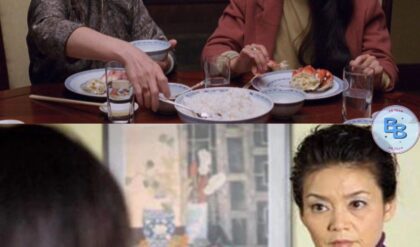A direct sequel to ‘Hello, Love, Goodbye’, ‘Hello, Love, Again’ continues the touching love story of Joy and Ethan. After a five-year wait since meeting Joy and Ethan in Hello, Love, Goodbye (2019), fans were excited to see the two continue their story in Hello, Love, Again (2024). Finally, they were able to receive answers to their questions about the two’s future.
Featuring OFWs in Canada amidst a global pandemic, the film paints a harrowing picture of many people’s survival during a difficult time, while showcasing the toll it takes on one’s relationships with their loved ones. In this article, Tatler dissects the movie’s themes, and whether it truly lived up to the hype.


Picking up where the 2019 film left off, Hello, Love, Again continues Ethan and Joy’s story through a conversation over the phone. We see a mirror of real life, portraying what we would do as soon as we land at the airport—call our loved ones and tell them what life is like on the other side of the world. This realistic portrayal was done well, as both Kathryn Bernardo and Alden Richards display emotions of excitement and melancholy beautifully.


Hello, Love, Again follows a flashback format, flitting between the past and present day. On one hand, we see Joy and Ethan reunited in Canada, enjoying this new chapter in their lives.
On the other hand, we meet Marie—Joy’s post-pandemic and jaded self—who’s struggling to cope with the return of her previous lover. This unique format worked well as it engaged viewers in the story, asking them to predict what led to the transformation of Joy to Marie and how the two can reconcile.
As a romcom, the film explores lighthearted moments between Joy, Ethan, and their friends. Ethan’s friend, Jhim (played by Joross Gamboa) steals the show with his well-meaning yet silly antics.
The cinema was rarely quiet as audiences laughed every time he was on screen or felt giddy during kilig (giddy) moments. These scenes are a staple in Filipino cinema and retain the same charm the first movie had.

The story reaches its climax with scenes of their life during the global lockdown. Here, the viewers are immersed in the struggles of OFWs without stable work in a foreign country.
One problem piles on top of another—from low wages to Ethan accidentally getting pricked by a used needle, culminating in his father’s death. It seems like his troubles had no end in sight, making for a truly haunting and gripping experience.

Unfortunately, the story falls down an overused trope in Filipino television and cinema—infidelity. After a long wait from the first movie, I hoped for a different conflict to make me root for their love, but the fact that Ethan cheated made me dissatisfied with the ending.
While they were able to live happily ever after, I found myself asking, “Why?’ Why would Joy go back to a cheater?” My anticipation for their reconciliation was thrown out the window.
I believe that the major conflict of the writing could be changed to something else and it would still stand—if not make it better.
This opens up a new conversation, one that affects the industry as a whole: Filipino writers and directors need to stop romanticising cheating.
Being the ‘bigger person’ by forgiving a deceitful partner shouldn’t be normalised and makes it hard to picture a bright future for the recovering couple. It might have worked in the past, but today’s audience is fed up with the trope and it needs to be dropped.

Another sad detail is that Joy never attained her dream of becoming a nurse overseas.
She was already on her way to make it happen but after reading a letter about finding your ‘tahanan’ (home) in a person you love, she drops everything to go back to Ethan. Once again, we see Joy give up a piece of herself for Ethan—which is a waste of her strong character.
Overall, Hello, Love, Again could have been considered one of Cathy Garcia-Sampana’s greats had it not been for the lacklustre conflict and ending.





